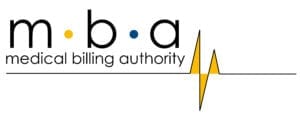
In today’s digital healthcare landscape, cybersecurity has become a critical concern for medical practices handling sensitive patient data. As cyber threats continue to evolve and healthcare organizations become prime targets for malicious attacks, implementing robust cybersecurity best practices is no longer optional—it’s essential for protecting your practice’s reputation, financial stability, and patient trust.
Understanding the Cybersecurity Landscape in Healthcare
Healthcare organizations face a unique set of cybersecurity challenges that make them particularly vulnerable to cyber attacks. Medical billing data contains highly sensitive information including patient demographics, Social Security numbers, insurance details, and financial information—making it extremely valuable to cybercriminals.
Recent studies show that healthcare data breaches cost organizations an average of $7.8 million per incident, significantly higher than other industries. These breaches not only result in financial losses but can also lead to regulatory penalties, legal complications, and irreparable damage to patient relationships.
Core Cybersecurity Threats Facing Medical Billing Operations
Ransomware Attacks
Ransomware has become one of the most prevalent threats targeting healthcare organizations. These attacks encrypt critical medical billing systems and demand payment for data recovery, often disrupting operations for weeks or months.
Phishing and Social Engineering
Cybercriminals frequently use sophisticated phishing emails to trick billing staff into revealing login credentials or downloading malicious software. These attacks exploit human vulnerabilities rather than technical weaknesses.
Insider Threats
Whether intentional or accidental, threats from within your organization pose significant risks. Employees with access to sensitive billing data may inadvertently expose information or, in rare cases, deliberately compromise data security.
Outdated Systems and Software
Legacy billing systems often lack modern security features, making them vulnerable to exploitation. Regular updates and patches are crucial for maintaining robust cybersecurity defenses.
Essential Cybersecurity Best Practices for Medical Billing
1. Implement Multi-Factor Authentication (MFA)
Require all staff members to use multi-factor authentication when accessing medical billing systems. This additional security layer significantly reduces the risk of unauthorized access, even if login credentials are compromised.
2. Establish Regular Data Backups
Create automated, encrypted backups of all medical billing data and store them in secure, off-site locations. Test backup restoration procedures regularly to ensure data can be recovered quickly in case of an incident.
3. Deploy Advanced Endpoint Protection
Install comprehensive antivirus and anti-malware software on all devices that access billing systems. Ensure these solutions include real-time scanning, behavior monitoring, and automatic updates.
4. Conduct Regular Security Training
Train your staff to recognize and respond to cybersecurity threats. Regular training sessions should cover topics such as identifying phishing emails, safe browsing practices, and proper handling of sensitive patient data.
5. Implement Access Controls and Privilege Management
Limit access to medical billing data based on job responsibilities. Regularly review and update user permissions, removing access for former employees and adjusting privileges as roles change.
6. Encrypt Sensitive Data
Ensure all patient data is encrypted both in transit and at rest. This includes data stored on servers, transmitted over networks, and stored on portable devices or backup media.
7. Maintain Secure Network Infrastructure
Implement firewalls, intrusion detection systems, and network segmentation to protect your medical billing systems from external threats. Regularly monitor network traffic for suspicious activity.
8. Develop and Test Incident Response Plans
Create comprehensive incident response procedures that outline steps to take when a cybersecurity breach occurs. Regularly test these plans through simulated attacks and tabletop exercises.
HIPAA Compliance and Cybersecurity
HIPAA compliance is fundamental to medical billing operations, and cybersecurity plays a crucial role in maintaining this compliance. The HIPAA Security Rule requires covered entities to implement administrative, physical, and technical safeguards to protect electronic protected health information (ePHI). Covered entities is defined by Medical Providers as well as Billing Services.
Key HIPAA security requirements include:
● Conducting regular risk assessments
● Implementing workforce training programs
● Establishing access management procedures
● Maintaining audit logs and monitoring systems
● Ensuring business associate agreements include cybersecurity provisions
Failure to maintain adequate cybersecurity measures can result in significant HIPAA violations, leading to fines ranging from thousands to millions of dollars.
The Role of Professional Medical Billing Services
Partnering with a professional medical billing service can significantly enhance your practice’s cybersecurity posture. Reputable billing companies invest heavily in advanced security infrastructure, including:
- State-of-the-art data centers with physical security measures
- Redundant systems and disaster recovery capabilities
- 24/7 monitoring and threat detection
- Regular security audits and penetration testing
- Compliance with industry standards and regulations
When evaluating potential billing partners, prioritize those who demonstrate strong cybersecurity practices and can provide detailed information about their security measures and compliance certifications.
Creating a Culture of Cybersecurity Awareness
Building a strong cybersecurity culture within your organization is essential for long-term protection. This involves:
Regular Communication
Keep cybersecurity top-of-mind through regular communications about current threats, policy updates, and best practices.
Encouraging Reporting
Create an environment where staff feel comfortable reporting potential security incidents without fear of punishment.
Leading by Example
Ensure leadership demonstrates commitment to cybersecurity by following established protocols and investing in necessary security measures.
Continuous Improvement
Regularly assess and update your cybersecurity practices based on emerging threats, technology changes, and lessons learned from security incidents.
Measuring Cybersecurity Effectiveness
Track key cybersecurity metrics to assess the effectiveness of your security program:
- Number and severity of security incidents
- Time to detect and respond to threats
- Employee training completion rates
- System vulnerability assessment results
- Compliance audit findings
Regular measurement helps identify areas for improvement and demonstrates the value of your cybersecurity investments.
Looking Ahead: Future Cybersecurity Considerations
As technology continues to evolve, new cybersecurity challenges will emerge. Stay ahead of these threats by:
- Monitoring emerging cyber threats and attack vectors
- Evaluating new security technologies and solutions
- Participating in healthcare cybersecurity forums and communities
- Maintaining relationships with cybersecurity experts and consultants
Conclusion: Protecting Your Practice’s Future
Implementing robust cybersecurity best practices for medical billing data is not just about preventing attacks—it’s about ensuring the long-term viability of your practice and maintaining the trust of your patients. By taking proactive steps to secure your billing systems and patient data, you protect your practice from financial losses, regulatory penalties, and reputational damage.
Remember that cybersecurity is an ongoing process, not a one-time implementation. Regular assessment, continuous improvement, and staying informed about emerging threats are essential for maintaining effective protection.
Ready to enhance your practice’s cybersecurity posture? Contact our team of medical billing experts to learn how our secure, compliant services can help protect your practice while optimizing your revenue cycle management.
If you’d like more information on this or any of the topics we share here, please contact us today at 1-800-795-1794 or 440-934-6135
Footnotes:


